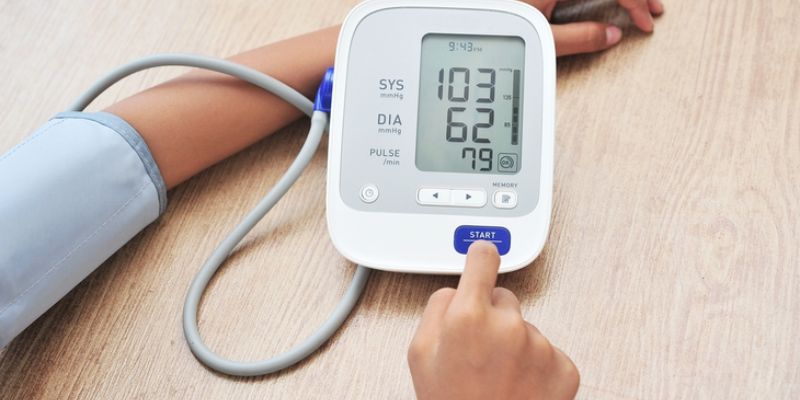Burnout may seem like an inevitable part of life for some, but there are steps you can take to identify the symptoms early on and prevent it from spiraling out of control. In this blog post we’ll look at what burnout looks like, what puts people at risk, how to recognize when it's happening &'' ways to avoid it before it starts affecting your mental health.
By understanding these aspects you will gain valuable insight into identifying &'' managing this issue proactively rather than reacting only after things have taken a turn for the worse!
Overview of Burnout:
In today's fast paced and competitive world, burnout has become a prevalent issue that can significantly affect an individual's physical and mental well being.
Burnout is a state of chronic stress that is characterized by:
- emotional exhaustion,
- depersonalization,
- reduced sense of personal accomplishment,
It often occurs when people feel overwhelmed by demands that they cannot meet or control, leaving them feeling drained, disillusioned, and cynical about their work or personal life. Burnout can affect anyone, but those working in high stress professions like healthcare, social work, or teaching are particularly susceptible.
Identifying the early warning signs of burnout and taking proactive measures to manage its effects can be crucial in preventing this condition from taking hold.

Steps to Beating Burnout:
Identify the Signs of Burnout:
The first step in preventing burnout is recognizing its warning signs as soon as possible. Keep an eye out for changes in your emotional state, such as feeling irritable, overwhelmed, or apathetic. You may also feel distant from colleagues or find yourself avoiding tasks that would normally be enjoyable. Physical symptoms like exhaustion, headaches, and muscle aches can also be a sign of burnout.
Identify Your Risk Factors:
It’s important to know what puts you at risk for burnout in order to take steps to avoid it. Common risk factors include unrealistic expectations or demands from your job, a feeling of lack of control over your work, and an inability to manage your workload.
Develop Coping Strategies:
It’s important to have strategies in place that can help you manage stress in a healthy way, such as learning relaxation techniques or mindfulness. Taking breaks throughout the day, scheduling regular time off work, and engaging in activities that bring joy can all be helpful for managing stress levels.
Seek Professional Help:
If you are struggling to manage your stress levels on your own, don’t hesitate to seek professional help. A mental health professional can help you develop coping strategies and provide necessary support during tough times.
Symptoms of Burnout:
Burnout can be described as a state of physical, emotional, and mental exhaustion induced by prolonged stress.
The symptoms of burnout may differ from person to person, but some common signs include chronic fatigue, irritability, and a feeling of detachment from work or personal relationships.
People experiencing burnout may also find it difficult to concentrate, suffer from insomnia or other sleep disorders, and experience physical symptoms such as headaches or gastrointestinal issues. These symptoms can have a significant impact on an individual's quality of life, making it crucial to recognize and address them early before they become chronic and potentially lead to severe health issues. Therefore, it is crucial to prioritize self care and seek help from professionals when experiencing the symptoms of burnout.
Risk Factors for Burnout:
Burnout is a phenomenon that can affect anyone, regardless of profession or age. There are several risk factors that can contribute to burnout, including:
- high levels of stress,
- unrealistic responsibilities,
- lack of control over one's work environment,
Working long hours or having a high workload are also common risk factors for burnout. It's important to recognize these risk factors and take steps to prevent burnout before it becomes a serious issue.
This can include:
- practicing self care,
- taking time off when needed,
- speaking with a mental health professional,
By addressing risk factors for burnout, individuals can maintain their well being and continue to be productive in their personal and professional lives.
Ways to Prevent Burnout:
Burnout can creep in when you least expect it, leaving you feeling exhausted, unmotivated, and drained. But there are ways to prevent it from taking hold. Firstly, it's essential to prioritize self care. This means:
- eating well,
- getting enough sleep,
- exercising regularly,
Making time for hobbies and activities that bring you joy can also help you relax and recharge.
Secondly:
- try to maintain a healthy work life balance,
- setting boundaries around work hours, and
- using your vacation days to take some time off,
Finally, consider seeking support from friends, family, or a mental health professional. Remember that burnout is a real and treatable condition, and taking proactive steps to prevent it is crucial for your overall well being.
Treatment Options for Burnout:
If you're experiencing burnout, taking a break might not be enough to fully recover. Luckily, there are treatment options available.
Some of the most effective treatments include:
- therapy,
- medication,
- lifestyle changes,
By taking the time to address burnout and explore these options, you can come out the other side feeling refreshed and ready to take on the world once again.
Self Care Tips to Reduce Your Stress Level and Combat Burnout:

Stress and burnout can feel like they're taking over your life. It's important to take care of yourself to prevent them from getting worse. Incorporating self care into your daily routine can help you reduce your stress levels and combat burnout. Simple things like:
- taking a relaxing bath,
- reading a good book,
- going for a walk,
can make a big difference in how you feel. Making time to exercise and eat healthily can also help you feel better both physically and mentally. Remember, self care isn't selfish it's necessary for your well being. Take the time to prioritize yourself and your needs, and you'll be amazed at how much it can improve your overall stress level and well being.
Conclusion:
Burnout is real and it affects us all differently. It can be overwhelming to realize that burnout is happening to you but knowing the signs, risk factors, prevention methods, treatment options, and self care tips can help you address it before it spirals out of control. Ultimately, burnout is manageable with the right plan in place. Taking a break, getting adequate rest and exercise, finding a hobby or activity that brings you joy and fulfillment outside of work are steps in the right direction for combating burnout. It might seem like a daunting task at first, but being proactive and taking steps towards recovering from burnout puts you back in control of your life again.
FAQs:
What is the most effective treatment for burnout?
The most effective treatment for burnout generally involves a combination of therapy, medication, and lifestyle changes.
What medication is used for stress and burnout?
The most commonly prescribed medications for stress and burnout are antidepressants, anti-anxiety medications, and mood stabilizers.
How long does it take to cure burnout?
The amount of time it takes to recover from burnout depends on the severity of the burnout, how long it has been going on for, and the type of treatment used. Generally, recovery can take anywhere from a few weeks to several months.




